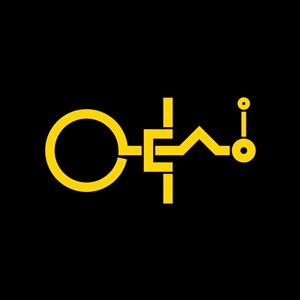 Mohsen Gallery
Mohsen Gallery
Hosein Mohamadi and Mahsa Nouri's duo show reflects the concerns of a generation, whether intertwined with the fabric of nature or human body. Formerly, Hosein's "Rupture" series and Mahsa's "Return" series were introduced in the "Episode 06" group show. In Hosein Mohamadi's large works from his latest series entitled "Yazashn", formal experimentations and theoretical concerns are interlaced. He has always been incorporating ancient Persian cultural and historical themes into his paintings. Contrary to many artists who ultimately arrive at abstraction after a process of practice and the representational repetition of their surroundings and sceneries, Mohamadi has taken the opposite route. By studying the works of abstract artists, such as Rothko and Newman, and with the influence of symmetrical and four-dimensional compositions of ancient Iranian art in his paintings, he moves from pure abstraction to realistic representation. These works are a window into the mind of the artist rather than a mere representation of landscapes and objects. In addition to an abstract approach to form, the artist extends the mythological inspirations by nature to a contemporary context, as dominating nature seems to be more important in today's world than being in harmony with her and nursing her. It is as if "Yazashn" is an incantation that revives the ancient love and friendship with nature that Mohamdi longs for. In his eyes the boulders are a symbol of history and the straw bales are a metaphor for the culture of farming and agriculture. The small elements that can be seen in his work-such as bullets, bread, and electricity pylons-may above all recall the epic spirit of Iranian culture, which is inseparable from the flesh and blood of the people of this land. Using humans and bodies as the main subject matter of her paintings, Mahsa Nouri is constantly seeking for answers and the reason for the violence inflicted on the body by placing limbs and organs in unusual and suspended conditions. "Black Water" equivalent to Glaucoma, is the title of Mahsa's new series which refers to an eye condition that damages the optic nerve and ultimately leads to blindness. Nouri has been struggling in these vague and dubious conditions in her family, and, to her, the experience of blindness is analogous to silence during the time of oppression. In the tedious conditions of oppression, the artist turns into an observer who can only paint this violent landscape with a hope that is tainted with doubt. A faint hope that has no meaning in this setting. Yet, hope never easily disappears. Both Hosein and Mahsa belong to a generation that is inadvertently dominated by collective anger and despair in whose development they did not play a role. Nonetheless, they have sought answers for the current situation and solutions to these concerns throughout their artistic careers.
Hosein Mohamadi:
"There is a chalice made with wit profound, With tokens of the Maker's favor crowned; Yet the world's Potter takes his masterpiece, And dashes it to pieces on the ground!" -Omar Khayyam
This very quatrain may be regarded as a proverbial window from the Greater Iran, through which one can have a clear perspective on the everchanging time, which is constantly renewing and transforming everything. There is an epic aspect to the soul of the Iranian culture, for after every rupture, it pulls itself out and reemerges from the other side. In the visual qualities of this collection of works, created from a pastoral, natural viewpoint, there is an indication of time and corporeality in a contemporary context.
Mahsa Nouri:
The unusual seem to have become normal to us. Hopelessly, we strive for something vague. Like someone with glaucomatous eyes, we follow a flickering, transient light.


